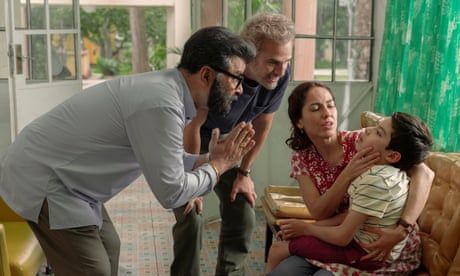
This story about a child with cerebral palsy is badly misleading – and a slap in the face for families like ours
Amazing news from Netflix: there is an extraordinary treatment available for children with very severe neurological disabilities, one that, given the appropriate level of parental gumption, will grant kids written off as hopeless cases the ability to walk and talk. The medical establishment, populated as it is with hopeless dinosaurs, hasn’t yet absorbed its full significance, and you won’t find it on the NHS, or through mainstream providers in the United States or Europe. But quietly, almost magically, it is already changing lives.
The device that provides this treatment, the Cytotron, is the subject of the Mexican movie Lucca’s World, the No 1 non-English-language film on the world’s biggest streaming platform last week. It follows one family – led by a remarkable mother, Bárbara Anderson, on whose memoir the movie is based – as they turn every stone in pursuit of a better life for their little boy. And as soon as Anderson learns about the Cytotron, there is very little room for doubt about its remarkable properties. By “stimulating the damaged brain cells in order for them to become more active and create new connections”, the device can apparently restore the functions that have been destroyed by Lucca’s severe cerebral palsy. “The Cytotron will mark a before and after in the history of medicine,” we learn. It’s “scientifically supported”. Yes, it’s eye-wateringly expensive – $50,000 for a single course of treatment in the movie – but that’s because it’s unprecedented.
Continue reading...